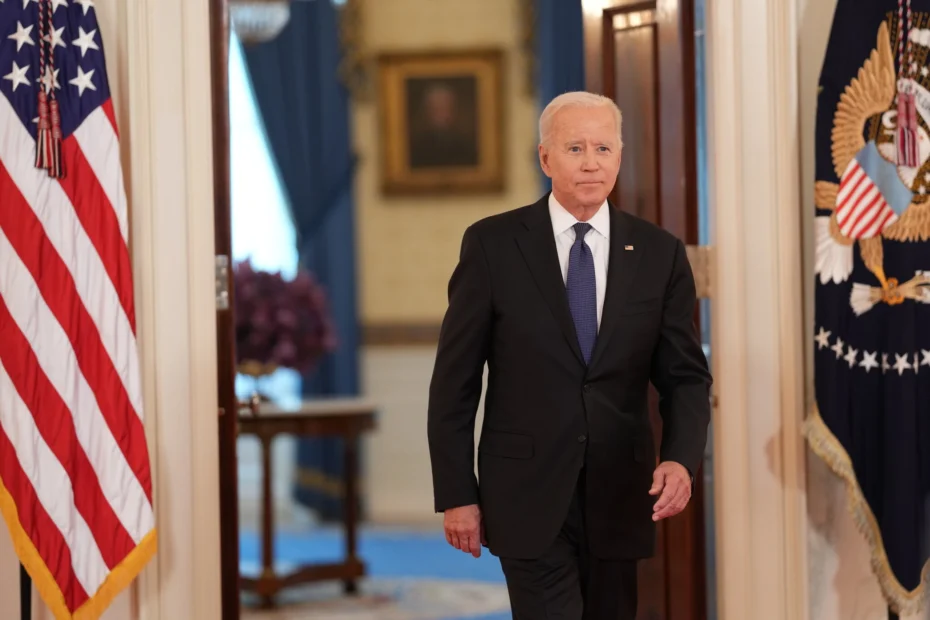one of the latest breaking news updates, President Biden addressed reporters at the White House, revealing that he holds individuals responsible for supplying weapons that led to the deaths of three U.S. service members. The president emphasized the importance of a forceful response to deter future attacks while also preventing a wider regional conflict.
Presidential Decision and Options Considered
President Biden, along with his national security team, has spent the past two days deliberating on options to respond to the recent attack. The decision-making process has involved balancing the need for a forceful response to discourage future attacks against the risk of triggering a broader regional conflict. The president has made it clear that any response must be more powerful than previous retaliatory strikes in Syria and Iraq.
Crafting a Response
Officials suggest that potential responses include striking Iranian-backed groups in Iraq and Syria, targeting leadership, or launching an offensive cyber attack. Striking directly in Iran seems unlikely, according to indications from the president and national security team. The goal is to demonstrate U.S. strength while avoiding an escalation that could lead to a wider conflict in the region.
Regional Implications and Concerns
As the president contemplates his decision, concerns about the broader implications and potential for escalation loom large. The Middle East correspondent, Nic Robertson, reports from Tel Aviv, highlighting Iran’s backing of various proxies across the region. The potential for a robust military response is emphasized as a language Iran would understand, with proxies present in Lebanon, Syria, Iraq, and Yemen.
Escalation Risks
The stakes are high, and the situation is described as incredibly volatile. The risk of an escalation of tit-for-tat exchanges is significant. The report suggests that regardless of the president’s decision, it is likely just the beginning of a series of actions and reactions that could unfold over time.
Secretary of State’s Assessment
U.S. Secretary of State Antony Blinken described the current situation in the Middle East as one of the most dangerous since at least 1973. The assessment underscores the gravity of the circumstances and the challenges the Biden administration faces in navigating the complexities of the region.
Volatility in the Middle East
The report notes that tensions have escalated not only in response to recent events but also due to ongoing conflicts, such as the situation between Israel and Hamas. The potential for a broader conflict is discussed, with Hezbollah and the Israeli Defense Forces engaging in increasing strikes along the northern border.
Political and Military Pressures on President Biden
The decision before President Biden is not only a military one but also carries significant political weight. The president, known for his skepticism about U.S. involvement in the Middle East, now grapples with the need for a decisive response. The report acknowledges the challenges faced by Biden in an election year, with pressure coming from various political factions.
Political Fallout
The political fallout of the decision is highlighted, especially within President Biden’s Democratic coalition. The progressive base expresses concern and protests regarding the conflict in Gaza, while some Republicans advocate for a strong response against Iran. The delicate balance between avoiding a wider war and projecting strength is a central theme in the president’s decision-making process.
Expert Analysis and Historical Context
CNN’s panel, featuring Jeff Zeleny, Kim from the Associated Press, and Aaron Blake from The Washington Post, delves into the challenges President Biden is navigating. The discussion revolves around the historical context of Biden’s policy views, the pressures from different political factions, and the complexities of the situation.
Fragile Moment for the President
The report concludes by emphasizing the fragility of the current moment for President Biden. The analysis acknowledges the power of incumbency while highlighting the multi-directional pressures on the president. The decision he makes will undoubtedly be remembered as a pivotal moment in his presidency.
In summary, the breaking news brings attention to the critical decision President Biden faces in responding to a recent attack, with implications for the broader Middle East. The report explores the options considered, regional concerns, the Secretary of State’s assessment, and the political and military pressures on President Biden, providing a comprehensive overview of the complex situation.
